Text
No, not me thinking about the 4th book and contemplating making characters for ALL the books right now. I haven't even progressed much in my first wip 💀
5 notes
·
View notes
Text
I decided on the themes of the last book!
I have four books under a vague - romance-theme I want to publish eventually that will be partially connected.
1) Being AKFTP - Reincarnation & Lost Love
2) ??? - About Death, Darkness, Morality, Immortality & Expanding the metaphysical side of the world.
3) ??? - Pirates, Myths & Mythology, Grand Adventure.
4) ??? - Likely about Hope & Optimism, Kingdom, Rebellion & Change, bringing a new and improved into a lost world.
1 note
·
View note
Text
I figured out a really dumb life hack for doing things with ADHD recently. Okay so not things. Writing specifically.
I figured this out by accident so I’m not 100% sure how to go about starting this, but I now have a scented candle that I only light when I am going to write. This does two things. One, it smells really nice. And two, it tells my brain I’m writing now.
Writing has a smell to it now. Like how cookies in the oven tells you to want to eat cookies, I have now tricked my brain into thinking ideas have a smell to them and to want to write them down.
The trick to it is that you need a new candle if you’re going to switch genres drastically.
221 notes
·
View notes
Text
Common Elements of Gothic Novels
Gothic fiction is a genre that combines both horror and romance, two of my most favorite things. I’m currently trying to write a novel with gothic energy, but I realized, I didn’t actually know what a gothic novel entailed outside of social commentary and dark aesthetic, and what separated it from plain horror. After doing some research, here are the common elements you’ll find in a gothic novel.
The main character behind as a nice, decent person, but must ultimately face the monster within them. Gothic characters tend to be representative of own desires to go buck wild feral and release a “darkness” within. A prime example of this is Henry Jekyll from Jekyll and Hyde.
Gothic literature is about transformation, an element that is not necessary when writing straight horror.
In Gothic literature, the past haunts the present. Whether that’s a dark act or memory for the protagonist, or an actual literal ghost, there is always some form of a past the MC would rather forget.
Romance in goth lit is tragic or bittersweet. Also, general romanticism levels are through the roof. Nearing melodrama.
The drama of despair drives goth lit; violence and blood drives horror.
Heightened, almost melodramatic emotions.
A gloomy, decaying, or abandoned setting with an atmosphere of mystery and suspense. An old decaying mansion or estate is a popular location in goth lit.
Often features a prophecy, legend, or omen.
Often features supernatural or otherwise unexplainable events.
Turns out I have less gothic elements in my story than I thought, but now I know how I can fix it! Hopes this helps somebody else too!!
2K notes
·
View notes
Note
villian x asistant if ur takinf request?
“Apparently.” The villain’s voice floated across the room towards them. “Someone broke Johnson’s face.”
The assistant paused, bloodied knuckles still under the warm running water of the tap. Their gaze snapped up to see the villain in the mirror’s reflection, leaning against the bathroom door with a deceptive casualness, attention fixed on them. The assistant looked down again.
“Broke? It’s probably an improvement.” They kept their own voice light too.
“I needed him for that trade. You knew that.”
The assistant bit the inside of their cheek and focused on getting the blood off, before turning off the tap and reaching for a towel.
The villain caught hold of their wrist. Tightly. The assistant hadn’t even heard the villain move.
The assistant drew in a breath, but didn’t fight the grip.
“I’m sorry,” they said, then. “It won’t happen again.”
“Why did it happen this time?”
“I fucked up.”
“You don’t do that.”
“Everyone does that.”
The villain clicked their tongue, a familiar warning shot, and the assistant sighed. Heat rose to their cheeks. They mumbled something.
“Didn’t catch that, dear,” the villain said.
“They said you were going soft,” the assistant snapped. “Losing your edge. That you only hired me because you thought I’d look pretty in your bed.”
“You do look pretty in my bed.”
The assistant glared.
“I don’t need you to fight my battles,” the villain said, after a moment. “And I certainly don’t care what that little weasel thinks of me. Johnson is unimportant in all of the grander machinations of the world. History will not bother to even footnote him.” The villain tugged the assistant’s wrist, and the assistant turned with a reluctant obedience to face their lover. “Let’s not pretend this is about my pride, hm?”
The assistant’s eyes flashed.
“I already said it wouldn’t happen again.”
“It better not.” The villain’s grip tightened hard enough to hurt, before releasing. “He may think me soft, but you should know better.”
“I do! I just -” The assistant stopped. Well, okay, yeah. The words had hit a sore point and they’d lost it. It wasn’t like they’d stopped to think before decking Johnson’s nose, seeing as the bastard couldn’t seem to keep it out of other people’s business. Their shoulders slumped. “The job comes first, and I jeopardised the job. I know that. You trusted me to handle him and I let you down.”
The villain hummed in acknowledgement. When they spoke, next, their voice was softer.
“I hired you,” the villain said, “because you are exquisite. You’re a brilliant strategist and an excellent shot. You should have nothing to prove to the likes of rats like Johnson, which makes me wonder if you get this kind of commentary a lot.”
The assistant shrugged.
The villain narrowed their eyes. “Why did you never tell me?”
“I can fight my own battles,” the assistant said. “I don’t need you to do it for me. It’s nothing.”
“Clearly not.”
“Look, I already said that I’m sorry and it won’t happen again.”
“And I’ve accepted that as your employer. That is not why we are still talking.”
The assistant paused again as they registered that, looking up at the villain again. The villain took their hand, entwining their fingers, and squeezed.
“I’m okay,” the assistant replied to the silent question, a little softer. “Really. He was just being so - ugh.”
“His face does look better now.”
The assistant snorted, and squeezed the villain’s hand back. The villain tugged them close to press a kiss to their forehead.
“Tell me next time,” the villain said. “I won’t stop at a broken nose if they hurt you, and it seems they need some reminder of that. Now.” They flashed the assistant a smile. “Let’s finish this so you can look pretty in my bed.”
“You’re hilarious.”
“It’s why you love me.”
God help them, but the assistant did.
Together, whatever else, they were unstoppable.
2K notes
·
View notes
Text
Me, reading my own WIP : damn this is lit. Hope op updates.
21K notes
·
View notes
Text
I have four books under a vague - romance-theme I want to publish eventually that will be partially connected.
1) Being AKFTP - Reincarnation & Lost Love
2) ??? - About Death, Darkness, Morality, Immortality & Expanding the metaphysical side of the world.
3) ??? - Pirates, Myths & Mythology, Grand Adventure.
4) ??? - Likely about Hope & Optimism, Kingdom, Rebellion & Change, bringing a new and improved into a lost world.
1 note
·
View note
Text
Apparently a lot of people get dialogue punctuation wrong despite having an otherwise solid grasp of grammar, possibly because they’re used to writing essays rather than prose. I don’t wanna be the asshole who complains about writing errors and then doesn’t offer to help, so here are the basics summarized as simply as I could manage on my phone (“dialogue tag” just refers to phrases like “he said,” “she whispered,” “they asked”):
“For most dialogue, use a comma after the sentence and don’t capitalize the next word after the quotation mark,” she said.
“But what if you’re using a question mark rather than a period?” they asked.
“When using a dialogue tag, you never capitalize the word after the quotation mark unless it’s a proper noun!” she snapped.
“When breaking up a single sentence with a dialogue tag,” she said, “use commas.”
“This is a single sentence,” she said. “Now, this is a second stand-alone sentence, so there’s no comma after ‘she said.’”
“There’s no dialogue tag after this sentence, so end it with a period rather than a comma.” She frowned, suddenly concerned that the entire post was as unasked for as it was sanctimonious.
82K notes
·
View notes
Text
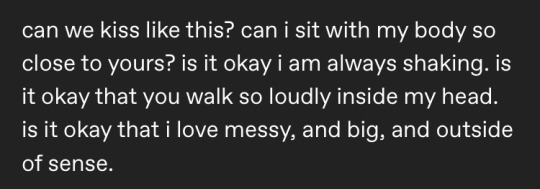
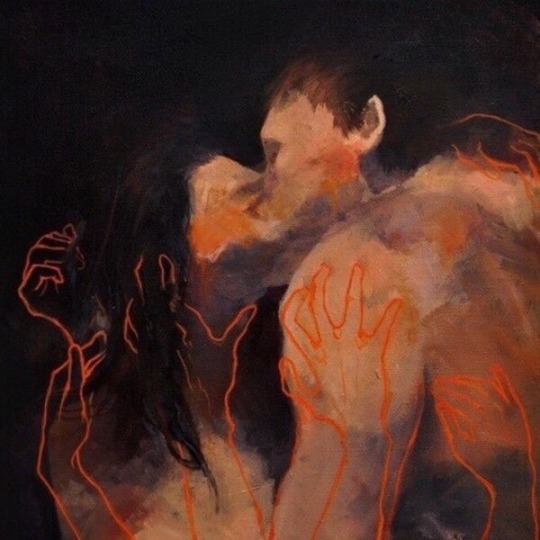


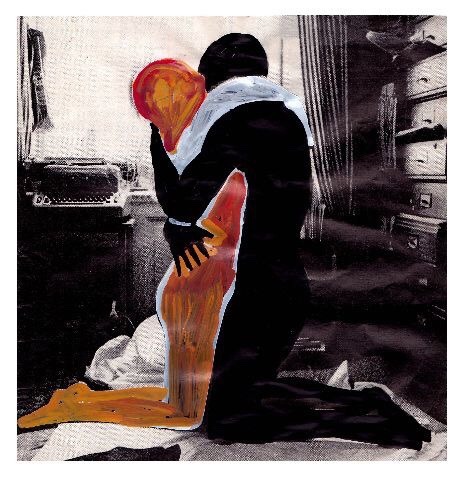


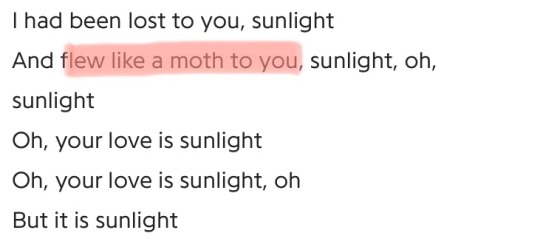
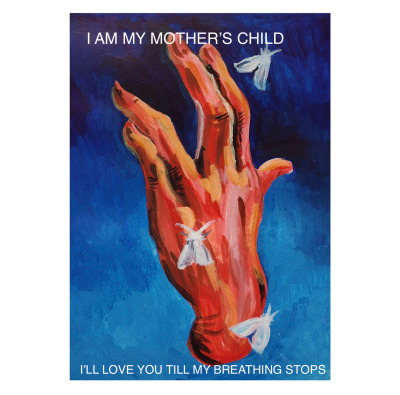
@inkskinned on tumblr/ “intimacy” by angelica alzona / “the leavetaking; poems: 1913-1956” by bertolt brecht / “helena” by my chemical romance / by daniel horowitz / “liberty” by paul eluard / “hard feelings” by lorde / “sunlight” by hozier / @sunsbleeding on tumblr
22K notes
·
View notes
Text
Writing often feels like an elaborate love letter to yourself.
#for me at least#i mean#marcus and aurial are too parts of me#it's the unconditional love there#that drives me#akftp
0 notes
Note
How do you start a second draft? I just finished my first one and I'm having a hard time getting in there to start changing things because it just seems like a lot to sift through
Print out your book on paper.
Then find time when you won’t be disturbed, and read it. With a pen, or a pencil. And anything you don’t like as a reader, make a note in the margin, or change it on the page.
Look particularly for things that you were hoping would be better. Mark them in the margin too.
And then work out what you need to do on the second draft. Basically, anything you didn’t like as a reader you get to fix as a writer.
3K notes
·
View notes
Text
It’s ok if your writing isn’t as good as you want it to be yet. Write more. Write even more than that. Your skill will catch up to your vision and then you will explode into a powerful forest witch and get an epic deep midnight cloak and create books that change the world.
3K notes
·
View notes
Text
Invaluable writing tips (From Blake Snyder’s “Save the Cat”)
I just finished this book on screenwriting and have highlighted some amazing advice for novelists as well:
1. Save the Cat
This refers to a scene at the beginning of yoru manuscript in which the main character does something that makes the reader root for them them i.e. saving a cat.
This doesn’t have to be something altruistic - it can include smarts or humour or naivety - just something that will make the reader want to follow this character through the story.
Without this scene, you’ll probably end up with a boring character. And no matter how amazing your plot, you need a “followable” character to carry it.
2. The Pope in the Pool
This refers to a scene in which necessary exposition is given whilst the audience is distracted by something more entertaining i.e. having the Pope explain important backstory aspects whilst doing laps in the Vatican Pool.
This is the best way to give readers the information they need whilst still keeping them engaged. Something funny/interesting/moving should happen whilst this necessary exposition is provided.
3. Double Mumbo Jumbo
This refers to the mistake many writers make in asking readers to believe in more than one type of magic/miracle. This suspends reality too much and causes the reader to lose faith in the realism/probability of your story.
So, if you already have magical fairies, don’t throw aliens into the mix as well.
ONE magical element is enough.
4. Laying Pipe
Another error often made is writing a story that needs too much set-up. This means that so much backstory must be explored in the first part of the novel that your catalyst only occurs at page 100 or so.
This will cause readers to lose interest long before they’ve reached the inciting incident. If you don’t get the beginning right and move on the exciting stuff as soon as possible, it doesn’t matter how great your ending is, since few readers will get there.
5. Watch out for that Glacier
This is when the danger in your novel takes too long/perhaps the whole book to get to your characters/to threaten them. Therefore, the reader is aware that there is some eventual threat, but the characters aren’t affected by it throughout the story.
It’s a glacier coming for them rather than a missile. And it dampens the tension.
6. The Covenant of the Arc
Every somewhat important character in the novel should change, except for the bad guy. This is what will ultimately distinguish your good guys from your villain: moral change.
So, take a look at the journey of every primary and secondary character in your manuscript and ensure that they grow/experience some for m of change that is brought about by the events in the story.
7. Keep the Press Out
This is the tip I think should be used with the most circumspection. It’s for you to decide whether you want to follow this piece of advice or not.
This tip calls for leaving media coverage/the press out of your story. If some supernatural/extraterrestrial event occurs in a secluded neighbourhood and remains a family secret, it’s much easier for your reader to believe that it could really have happened than if the whole world is supposedly in on it.
Like I said, use with discretion.
These are all Blake Snyder’s tips (not mine) and are explored in greater detail in the book. So, if you would like more information and more great advice, I suggest grabbing a copy.
Reblog if you found this useful. Follow me for similar content.
16K notes
·
View notes
Text
Cheat Sheet for Writing Emotion
Anger:
Grinding teeth
Narrowing eyes
Yelling
A burning feeling in the chest
Heavy breathing
Unjustified or justified accusations towards other characters
Jerky movements
Glaring
Violence
Stomping
Face reddening
Snapping at people
Sadness:
Lack of motivation
Messy appearance
Quiet
Slow movements
Crying
Inability to sleep
Frowning
Red eyes
Isolating oneself
Fatigue
Not concentrating
Keep reading
46K notes
·
View notes
Text
“Nothing ever ends poetically. It ends and we turn it into poetry. All that blood was never once beautiful. It was just red.”
— Kait Rokowski
8K notes
·
View notes
Text
Are you really…. not supposed to…. describe what your characters are wearing….
57K notes
·
View notes
Text
I am technically creating a lot of angst for my characters (the first few chapters will be an obvs indication) but the softness and the gentleness that's going to come out of it will likely direct come for my throat and BOY will I be looking forward to writing that.
0 notes